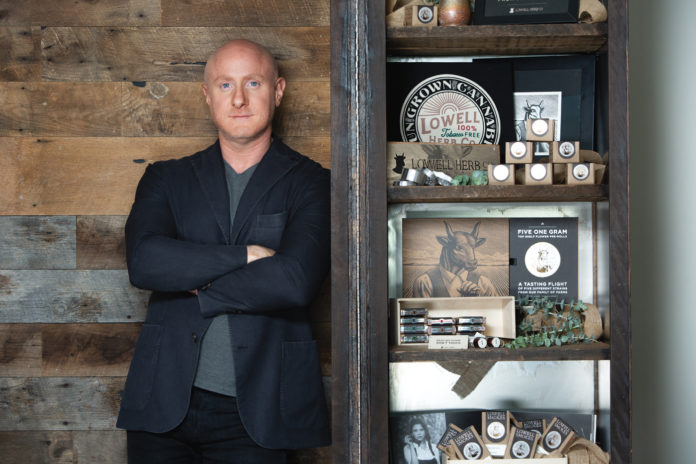For all the talk about vertically-integrated companies with deep pockets moving in to dominate the cannabis industry, leave it to a lean-and-mean upstart with a simple idea to steal the show: Lowell Herb Co.’s pack of fancy-pants pre-roll smokes is one of the first iconic, must-have products in the most competitive weed market in the world.
When the company launched in 2017, Lowell worked with one farm, employed five people, and harbored a grandiose plan to become one of the first household names in the United States. Two years later, it’s well on its way. With a 35-percent market share in California’s pre-roll market, 350 dispensaries on its distribution roster, and 135 employees across the state, the company named for “Indian hemp” pioneer and proto-counterculture dissident William “Bull” Lowell is staking a claim far and wide.
Co-founder and Chief Executive Officer David Elias, who shares a certain amount of nonconformist ideology with the company’s namesake, is no stranger to startups and competitive business environments. With an uncanny ability to create buzz around a brand, he’s built and exited two successful startups over the past twenty years. His guiding philosophy boils down to this:
“It’s more about the product being loved than the money being spent to convince people to love it.”
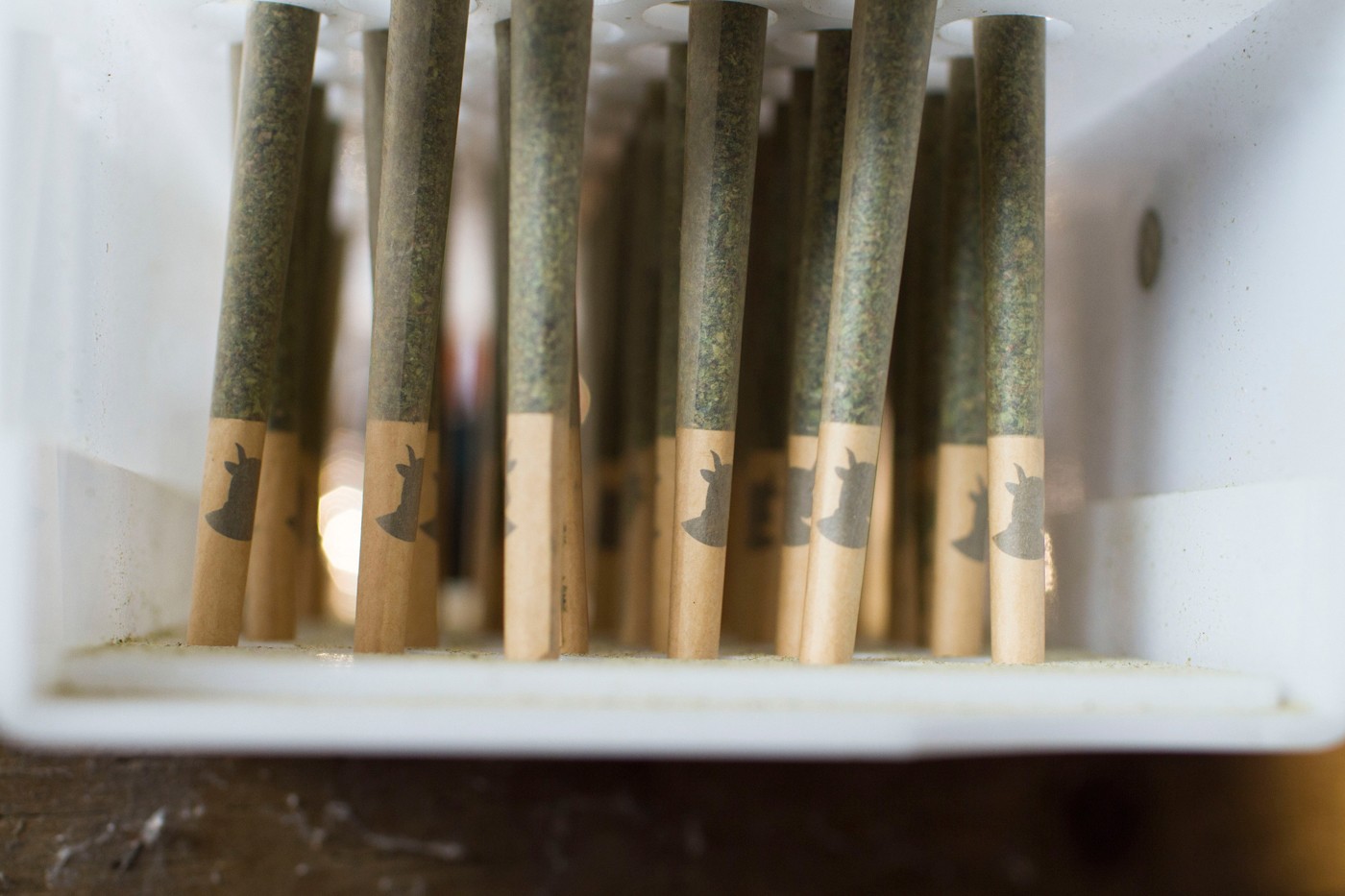
Marketing, hacked
The cannabis industry’s origin story is largely a tale of renegades and hippies-turned-farmers going back to the land and growing some weed along the way to help support their maverick, off-grid lifestyle.
Elias is from a different planet altogether. Raised in Long Island, New York, he ran documents around Wall Street as an ambitious teenager, then spent several years as a trader at securities brokerage firm Bear Stearns. In the 1990s he launched his first startup in his pint-sized West Village apartment. The concept was ahead of its time: viral marketing. He said the influencer marketing idea was a natural outgrowth of his lifestyle, which included DJing at various clubs in the city and hanging out in the intermingled arts communities. Connecting artists and other influencers—or “creators,” as he prefers to call them—with aspiring brands turned out to be a great business in the capital of all things hip and marketable.
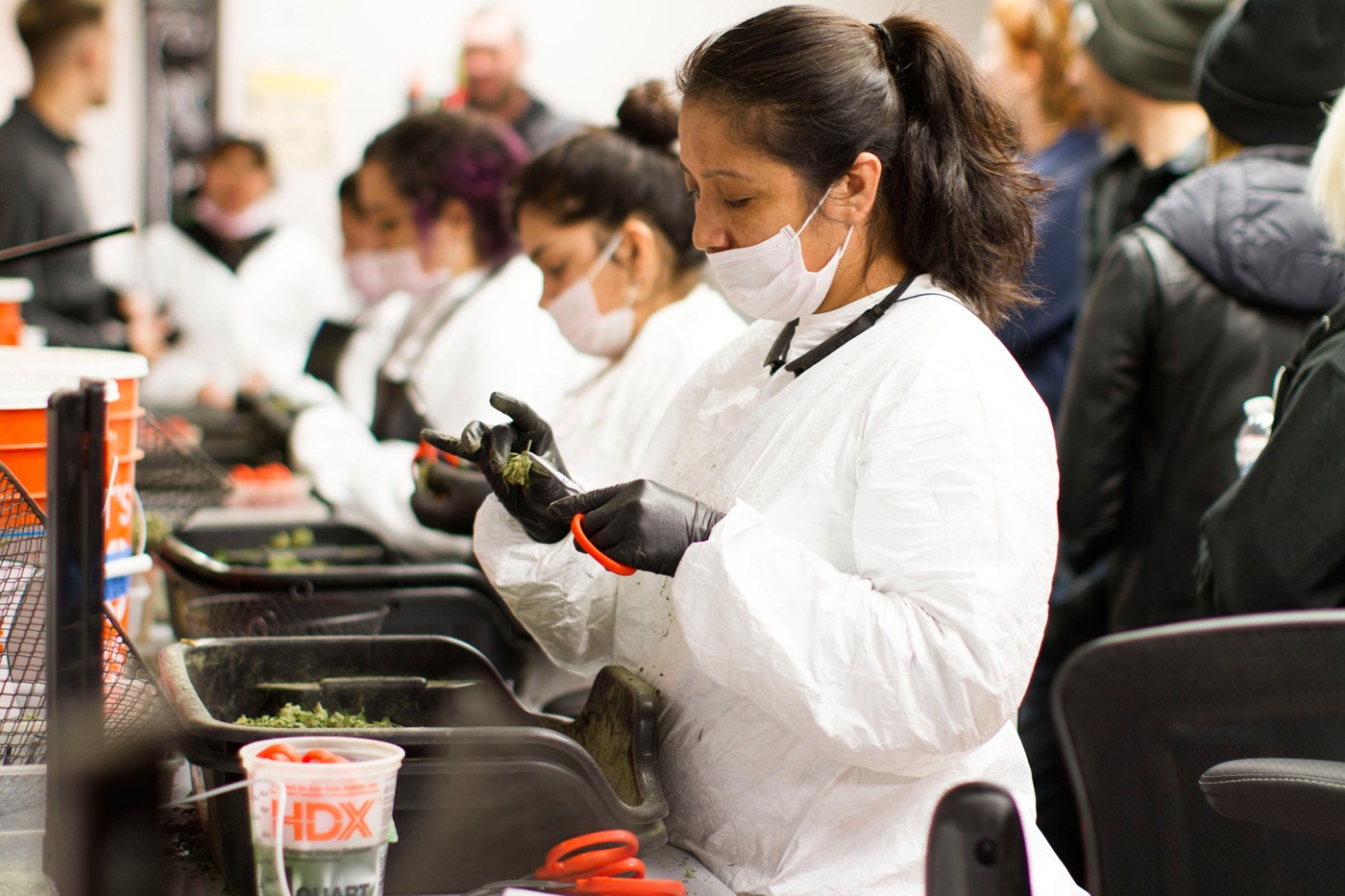
“My experience running that agency was impactful, connecting brands in a meaningful, authentic way, which was imperative at that time,” he said. “We knew a lot of people in New York, so we would help connect people from nightclubs, clothing stores, creative agencies, record labels, modeling agencies. We started promoting products, and later we used the internet to do that for big brands like Coke, Bacardi, Intel, Chase, and later Facebook, which was still a small company at the time.”
Over the course of his career, Elias has been a marketing, finance, and technology entrepreneur in several successful ventures. But in 2016, he decided to devote all his time and energy to dissecting the cannabis industry. So, he moved to the biggest weed market in the world to begin his journey: California.
“I’m incredibly inquisitive, and there’s a part of my brain that is constantly problem-solving, so I excel at that,” he explained. “What I learned is that you want to be early on your idea, and there’d better be something special about what you’re creating. And then you hire the best and brightest team possible. That’s how you take an idea and turn it into reality.”
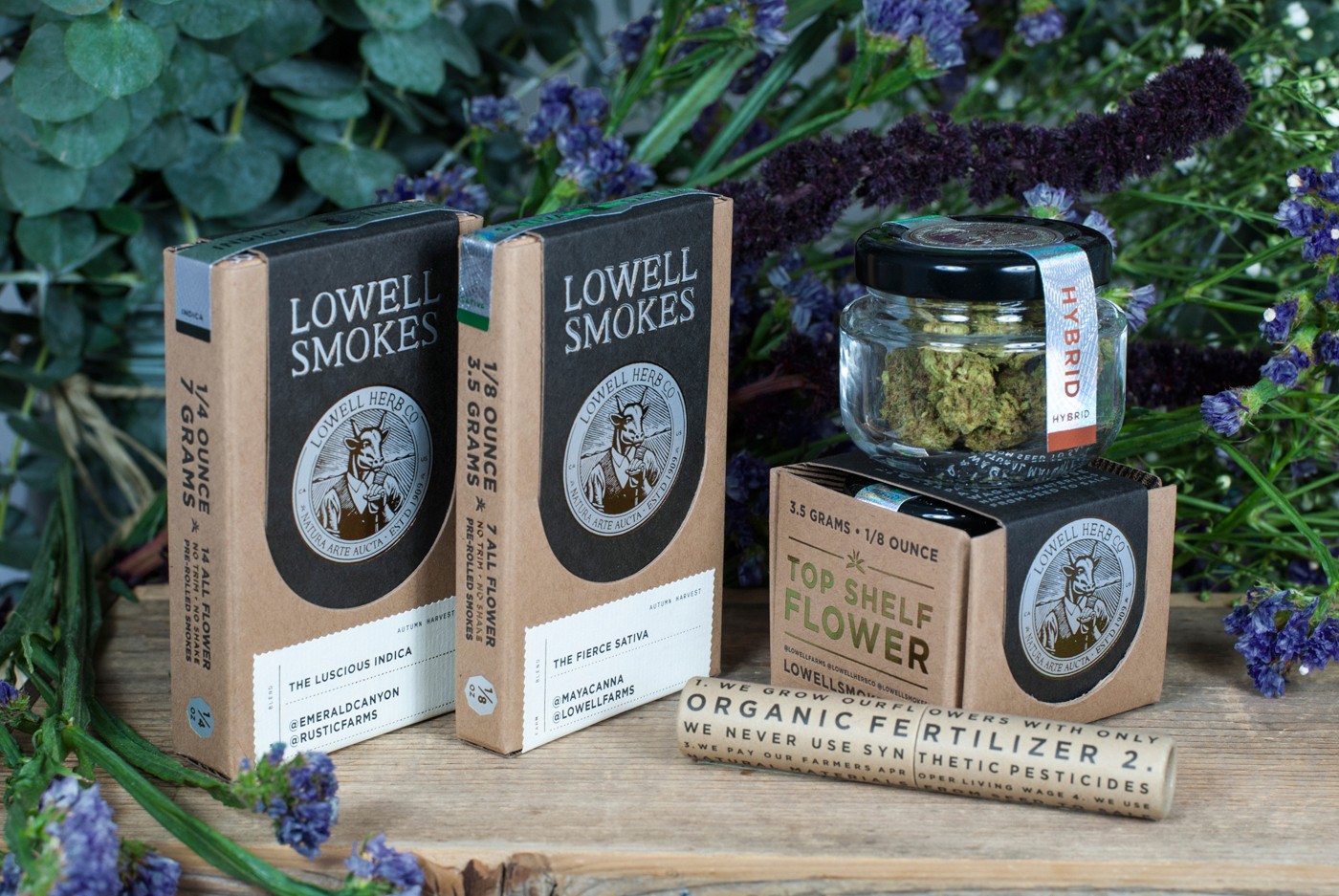
3-2-1… Lift off!
After moving to Los Angeles in 2016, Elias visited farms, met with sales and distribution representatives, and for several months shadowed a friend who owned a dispensary in Studio City. He created a database of SKUs for all the brands he could find on Weedmaps. It was a scorched-earth approach to research, with no nugg left unturned.
“When we launched [Lowell Herb Co.] in 2017, I felt very confident that I understood the market,” he said. “Like anything else, you can’t just jump in with an idea. You have to have a feel for the market, for the consumers, the store owners, and a sensitivity to proper pricing. We wanted real relationships with great growers so we would have the best possible flower. By the time we launched, we were very ready. But you’ve got to put that time in.”
When ready to build his team, Elias looked for people with meaningful experience and relationships in the cannabis industry. To find a sales team leader, he went looking for the best budtender. “This guy is having 1,000 conversations a month with customers!” he said. He took a similar tack with his top buyer, a veteran farmer from the Emerald Triangle with deep connections to other talented farmers in the region. “He knew what it was like to put time, money, energy, and his life into a grow,” Elias said.
Now, two years into the game, it’s all systems go.
“I think we have a heightened awareness of all the critical components of success,” he said. “There’s the team we’re building, the products, the connections at retail, the social media talking to our fans, the merch we create. And then on the back end, having systems in place, staying on top of compliance and licensing. It’s all a steep curve. My comfort level is nothing less than perfection on our quality and our protocols. All those things are incredibly steep in this industry.”
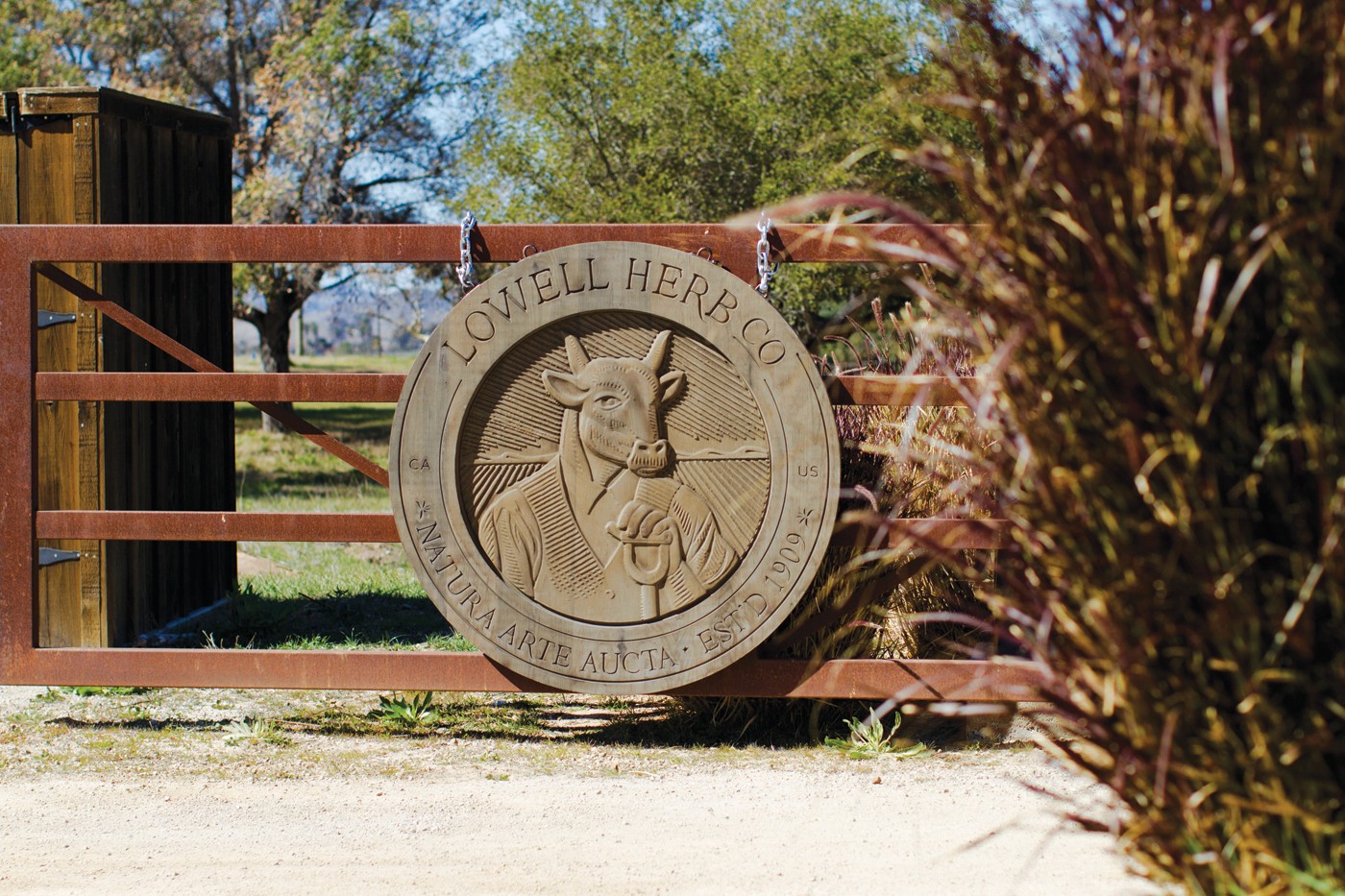
The Coachella incident
In the spring of 2017, Elias saw the Coachella music festival on the calendar and decided it was time Lowell made its first big viral media splash. The company announced the now-notorious “weed flower crown” before the festival. With $55 and a trip to a dispensary in nearby Palm Springs, concert attendees could buy the prized product, composed of one-quarter ounce of the company’s Dog Walker, Single White Girl, and Chocolate Hashberry strains. Buzzfeed summed it up well at the time: “That’s right folks. You can now wear a flower crown with smokable buds of weed in your hair. 2017, am I right?”
“It’s more about the product being loved than the money being spent to convince people to love it. “
Not long after that marketing home run, Lowell offered a $300 tasting flight of Lowell flowers to light on the eight nights of Hanukkah. Come Valentine’s Day, the company marketed a bouquet of wildflowers, eucalyptus, and an ounce of prized buds. It was love at first sight for Lowell’s customer base.
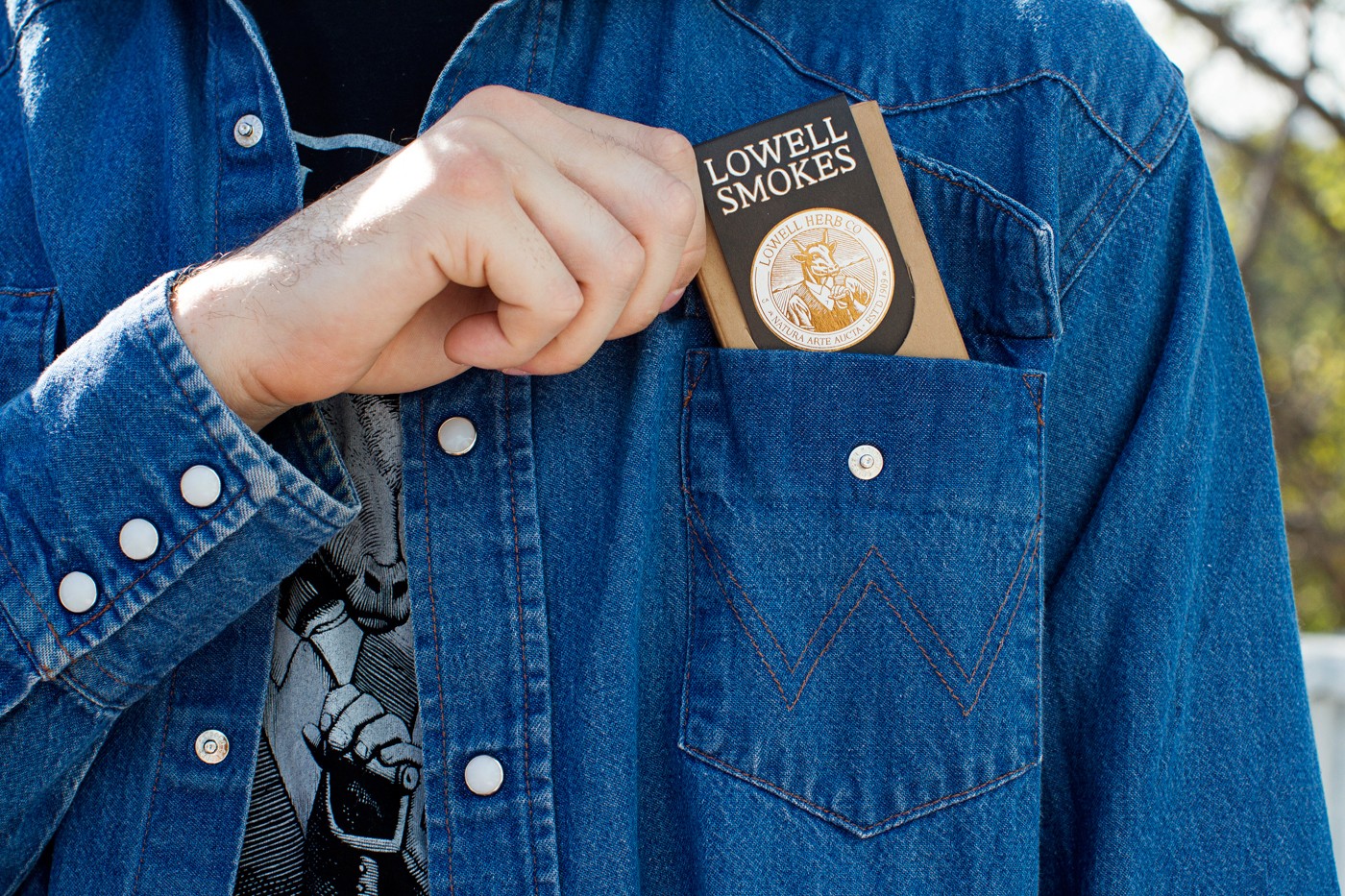
At its core, though, Lowell Herb Co. is about creating the perfect pre-roll. Its Smokes packs are sold in a variety of strain configurations and sizes, with detailed descriptions of the flowers, profiles, and farm origins. With a pledge to contract with only organic, pesticide-free farms and “pay our farmers a proper living wage,” Lowell has earned a reputation for high-quality, sun-grown flower in unique and exotic strains. But its anchor product line isn’t the only reason for the company’s success. With its quirky and creative promotions, Lowell continues to enchant a growing crowd of evangelists, who giddily spread the word, and weed, at parties and on social media.
“Expansions need to be well-thought-through, and it’s not about being in every market.”
“We wanted to create fantastic products with beautiful packaging that could be marketed and promoted by these great brand ambassadors sharing their experiences, so that core message of the passion and craftsmanship is translated,” Elias said.

Lowell HQ resides in a nondescript building on a nondescript street in L.A., but walk inside and the brand and its vintage-chic aesthetic are on full display. A conference room doubles as a showroom for the company’s artisanal products and slick merchandise, everything from ashtrays and grinders to ceramic match holders, wooden coins (wait, what?) and humidors. Planted in the hallway is one of the more extravagant cannabis merch indulgences you will find: a Lowell-skinned vintage vending machine that’s offered for a cool $15,000. (We’ll assume it comes fully stocked.) Walk through the space with Elias, though, and he seems most excited about a new batch of T-shirts he commissioned from several artists, each of whom spun the company’s logo and brand message in a clever way.
“What we’ve seen over the past year is that customers are finding brands they love. The demand we see at retail is not from tricky sales programming; it comes directly from consumers who are excited by the things we create,” said Elias. “We don’t spend any money on marketing or advertising, which is quite shocking for a brand with a 35-percent market share. Everything is word of mouth. We are solely focused on the customer experience and are always thinking about the decisions we make to wow those customers.”
In short, when Lowell has the likes of Emma Stone, Usher, Diplo, and Miley Cyrus hyping its brand on social media, there’s no need to put money toward plastering the company’s signature bull on billboards around town.

To keep its momentum and viral media presence on the fast track, Lowell has introduced several new products of late, including Chiefs (one-gram, tobacco-free blunts rolled in palm leaves) and a variety pack that includes some of the company’s most popular strains. Sitting on the coffee table in Elias’s office is a pack of Lowell’s new CBD smokes, which he thinks could be a boon for cigarette smokers trying to quit. And he should know: Nicotine sticks are one of a few addictions Elias has kicked over the years. When he starts talking about the opioid epidemic, he clearly has empathy for people still struggling with addictions. He talks about the importance of fighting for social equity in the cannabis industry and communities that have been harmed by the abysmally ineffective war on drugs.
“We’re mindful of getting our name out there, but also being impactful and mindful of people affected by non-violent cannabis crimes,” he said. “We hire a few people [convicted of drug crimes] each quarter in our social equity program and will continue to add them as we grow.”
Staying true to its unconventional marketing strategies, Lowell promoted the social equity program via a billboard down the block from the Men’s Central Jail and Twin Tower Correctional Facility in downtown L.A.: “Recently Pardoned? We’re Hiring.” The company also promoted its jobs initiative on TV, radio, and online outlets. Along with full-time jobs, the program includes internship opportunities, on-the-job training, education, and other resources to help non-violent drug-war victims prepare for careers in the industry.
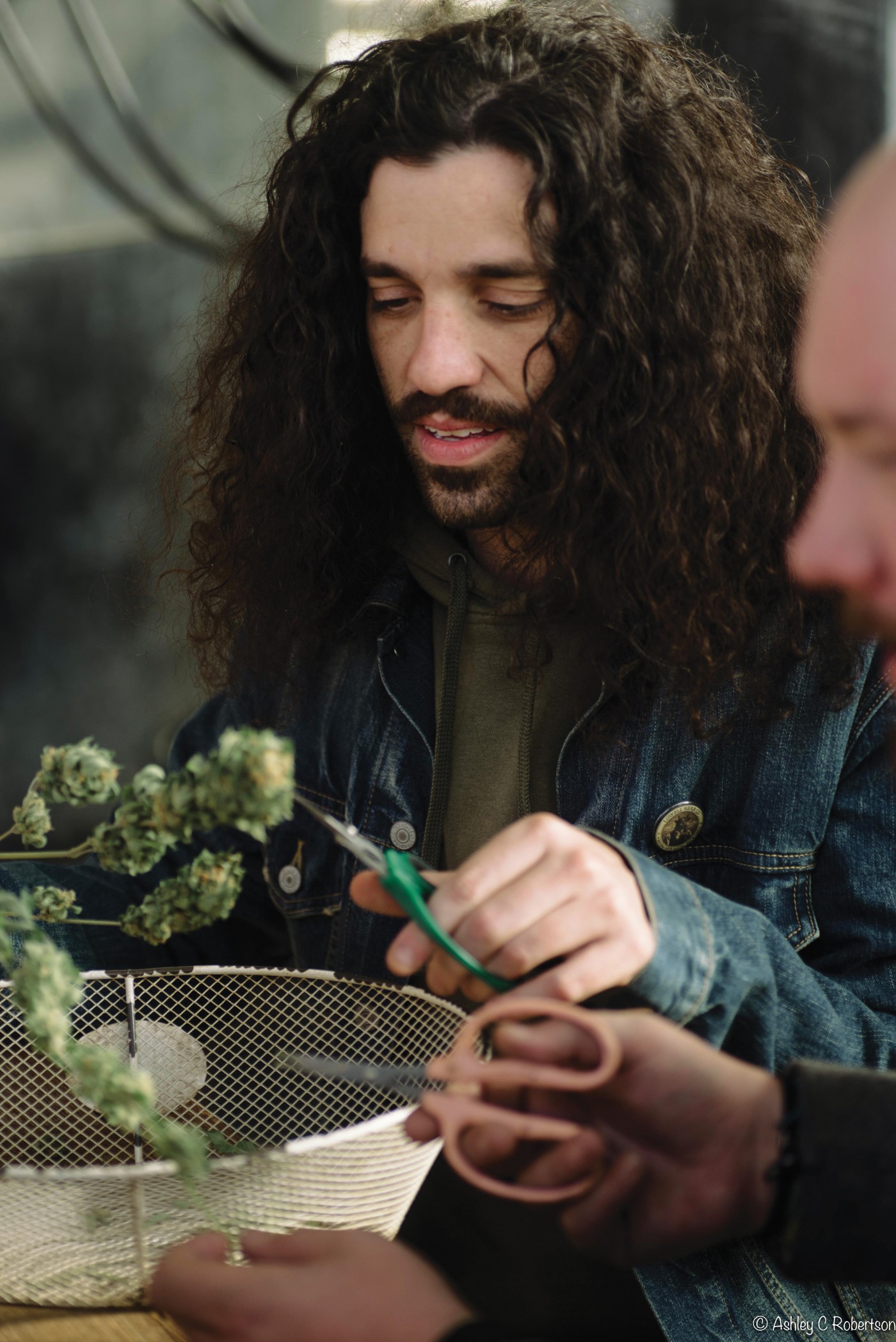
Maintaining momentum
Initially, Lowell sourced products from just one farm, but the family tree now encompasses forty-five farms—and the tree is still growing. To satisfy the company’s production goals moving forward, Lowell purchased a sixty-three-acre farm in the Santa Ynez Valley, north of Santa Barbara, California, where Elias plans to give family farmers their own plots to grow prized strains.
“There is a lot of craftmanship in cannabis that is both science and art, and the farmers we work with have nailed that,” he said.
“You want to be early on your idea, and there’d better be something special about what you’re creating.”
Maintaining market share in an ultra-competitive market is no easy task, but Elias is bullish on Lowell’s future and expansion plans. The company recently received approval for a manufacturing license in Los Angeles, and the research-and-development team has been designing and testing new products that meet Lowell’s standards for quality and creativity.
“One of the main things we’re wary of is taking the trust of our customer for granted,” Elias said. “In our R&D, we won’t enter a category unless we are sure we can create a better product. What we’ve created is a brand platform, so the brand side is not just one component—it’s packaging, sales, and an incredible ability to launch the right products at the right time. I’m very excited about 2019.”
One of the ways Lowell develops new product ideas is by tapping the people on the retail front lines: budtenders, who say it can be difficult to explain how different strains may impact individual users. Experience depends on a variety of factors beyond anyone’s control: health, tolerance, and preferences, among other variables. To help consumers better understand the taste and effects of different strains, Lowell developed a variety pack—seven single-strain hybrids, sativas, and indicas, pre-rolled into half-gram joints. Lowell also invites budtenders into its headquarters to educate them about the nuances of its products and give them an up-close look at the company’s work culture and milieu.
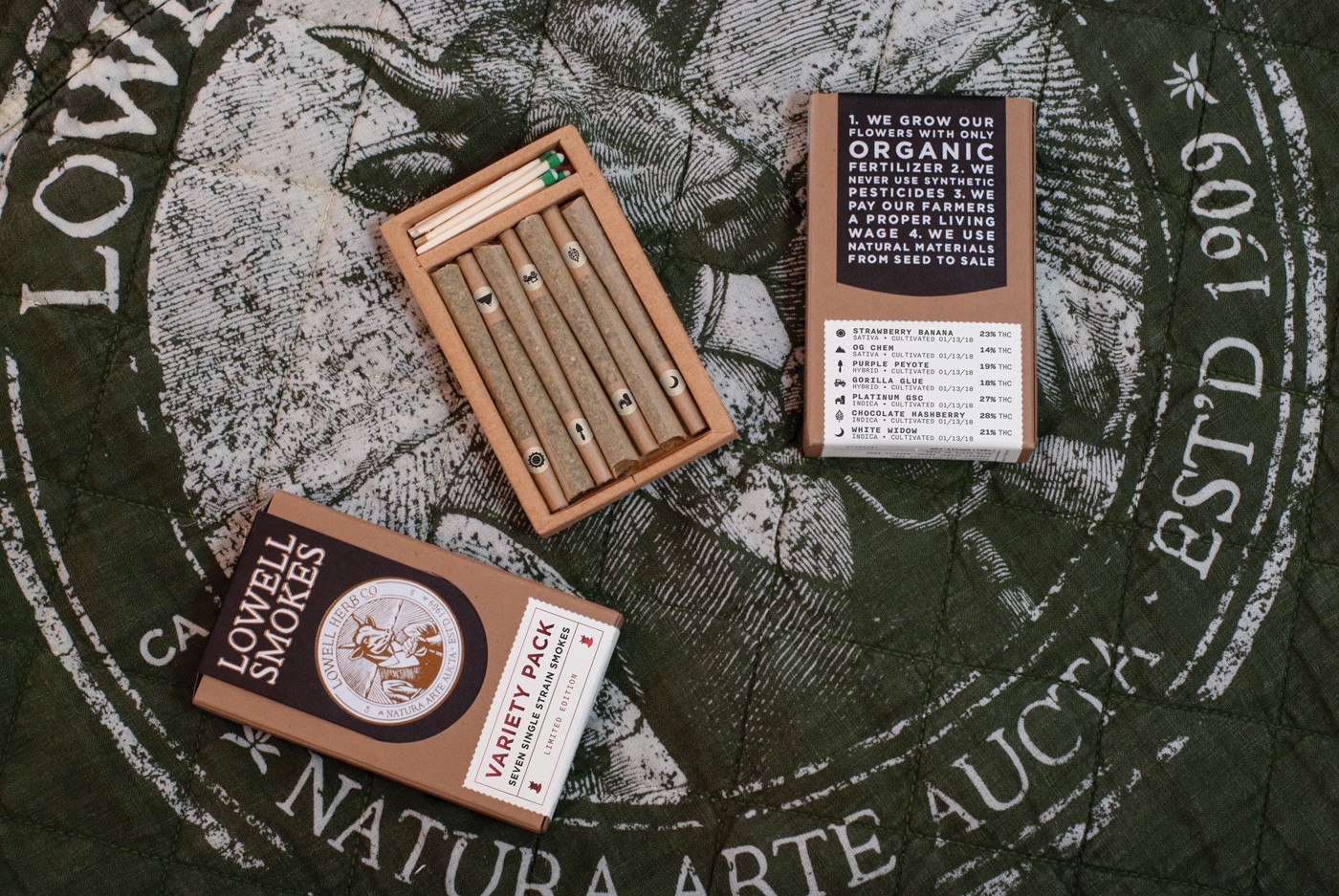
About two-thirds of the company’s revenues still derive from simple, elegant packs of smokes, but Elias is eager to expand the product line, slowly but surely.
“Expansions need to be well-thought-through, and it’s not about being in every market,” he said. “We spend a considerable amount of time and energy thinking about issues and concerns on products that have not yet been created or haven’t been brought to commercialization. We have a great R&D team working on different product considerations, and we’re taking a close look at those opportunities.”
He said one of the opportunities was a no-brainer: jumping head-first into the exploding CBD market. This spring, the company launched Lowell CBD Smokes, a pack of joints made from “the highest quality, phytocannabinoid-rich hemp containing a full spectrum of cannabinoids such as CBD, CBG, CBN, CBC, and terpenes.” Because the herb contains only trace amounts of THC, the company is able to sell the CBD Smokes through its website and in stores across the U.S.

A weed lounge fit for the stars
As Elias and crew built the Lowell brand over the past two years, they interacted with a diverse community of industry operators, tastemakers, and enthusiasts by hosting harvest parties and tastings. The events provided real-time, real life feedback about new products and plans.
“Customers are finding brands they love. The demand we see at retail is not from tricky sales programming.”
Now Elias intends to open that experience to a wider audience with the launch of a branded weed lounge and café located in one of the hippest ’hoods on the West Coast. The company recently secured a license to operate a consumption lounge in West Hollywood, and Elias feels certain the destination will become the spot to light up when it opens in June. The Cannabis Café will be a “Mediterranean oasis, hidden from the street up a guarded elevator” and offer fresh-pressed juices, artisan roasted coffee, and food sourced from local farms that can be infused, at the guest’s direction, with THC and/or CBD. The chef, Andrea Drummer, has worked for Michelin Star chefs and renowned restaurateurs such as Neal Fraser and Thomas Keller and is a budding star in the cannabis-infused food scene.
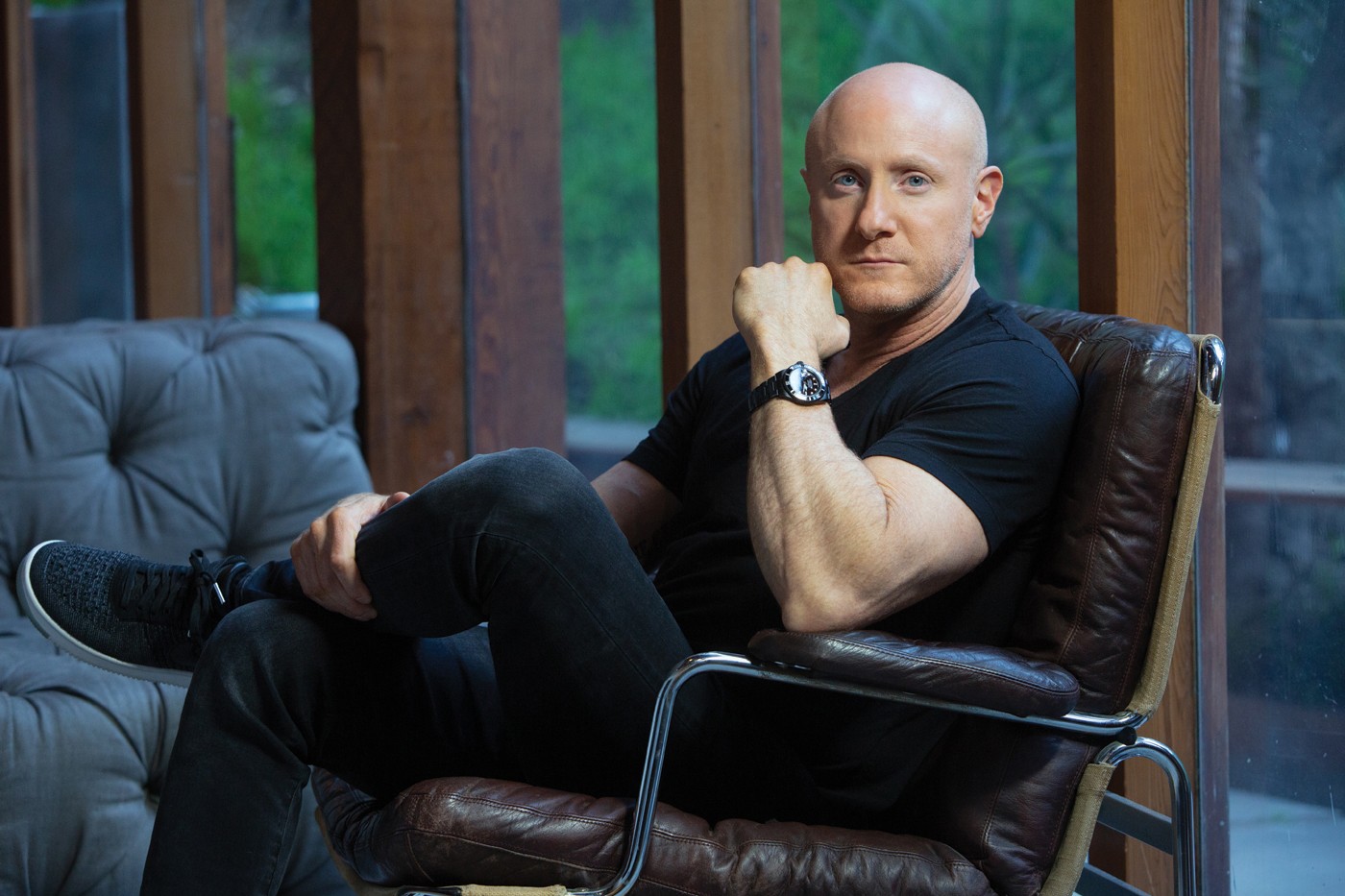
As he contemplates rolling out Lowell in more locations along the West Coast—the company recently set up shop in Oregon and has plans for Washington state and Nevada—Elias doesn’t take his early success for granted. With experience at his back, he knows what it takes to keep the ball rolling.
“The past two years have been the most challenging of my life,” Elias said. “In all of my business experience over twenty years, when people ask me about this industry, I say, ‘Take the hardest activity you’ve ever had and multiply it by ten.’ That’s every single day I’m awake.”







